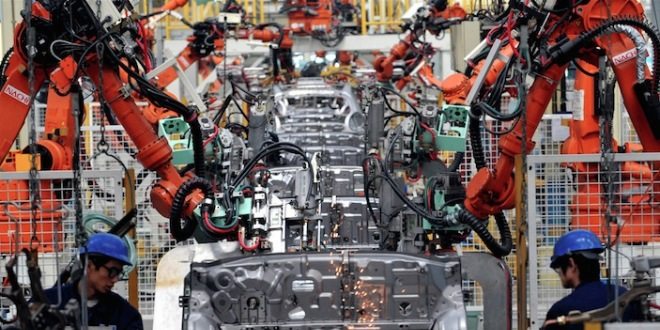When it comes to robotics, China is developing a yawning credibility gap. More than most nations, it desperately needs machines of varying levels of intelligence to deal with work that can’t be fulfilled by a rapidly graying population. “Robots will show up in China just in time,” predicts Daniel Kahneman. The nation certainly hopes so.
Hoping and executing are two different things, however. In 2011, Foxconn promised a million robots would be installed in its factories within three years. That did not transpire. More recently, the Apple-enabler was reported as saying it was on the verge of automating 60,000 jobs. According to an article by Adam Minter of Bloomberg, that appears to have been an empty promise as well. You could dismiss the hype as the irresponsibility of one giant company except the writer reports that bureaucrats were intimately involved with the deception.
From Minter:
The story first turned up in mid-May: Foxconn, Apple’s favorite manufacturer, was replacing 60,000 of its workers with robots. Everyone from the BBC to Apple fan sites soon reported the ground-shifting news. There was just one problem: It was mostly false.
Last weekend, a Foxconn spokesperson told Chinese media that the company hadn’t laid off anyone, much less replaced them with automation. That part of the story came from overly enthusiastic bureaucrats in Kunshan, a manufacturing town keen to promote itself as a hub for innovation.
The incident seemed like an apt metaphor. Across China, officials are hoping that robots are the future. Thirty-six cities claimed last year that robotics was critical to their development. More than 40 government-funded robot industrial parks have recently opened or are in the works. Shenzhen, the southern Chinese tech hub, is now home to more than 3,000 robotics companies — up from 200 just two years ago.
In theory, this should be great news for a country hoping to encourage innovation In reality, it’s a sign that China has subsidized yet another investment bubble with capital that would’ve been better invested elsewhere.•

